Being black in Singapore: Our African history might go back to Bugis ancestry
Advert
CNA Lifestyle
Being black in Singapore: Our African history might get back to Bugis ancestry
A new play at the M1 Singapore Fringe Festival looks at the history of black people in Singapore. (Too, did yous know Sir Stamford Raffles was built-in in Jamaica on a slave send?)
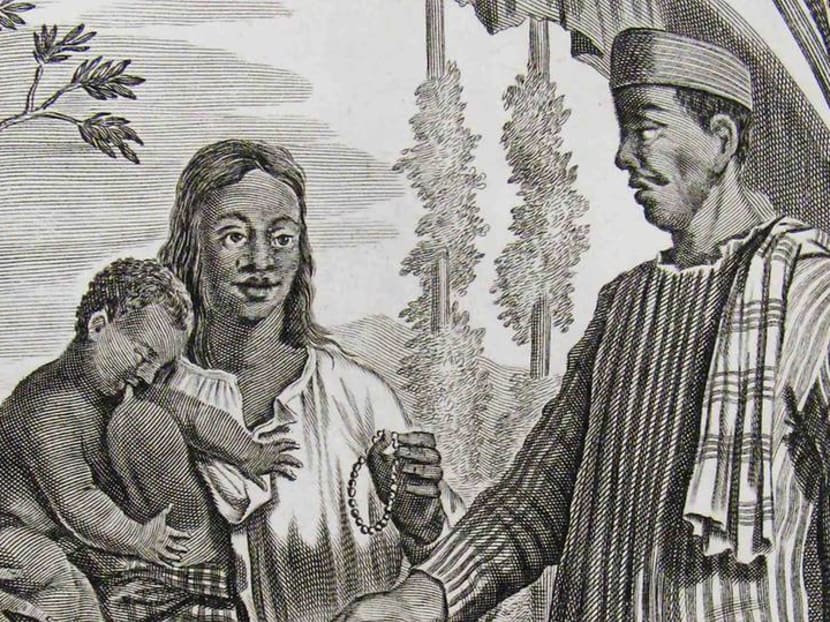
An African family in colonial Java during the 1600s, taken from Johann Nieuhof's Voyages And Travels Into Brasil, And The East-Indies. (Photograph: Courtesy of Farish Noor)
When Blackness Panther hit cinemas in Singapore early last year, Cristelle Mouyelo decided in that location was only one way to celebrate the big screen debut of the first mainstream African superhero – she and her family unit headed for the movies dressed upward in African garb and a bit of face paint.
"When we arrived at the premiere at VivoCity, people stared the minute we got out of the taxi," recalled the 43-yr-onetime Cameroonian. "People were taking pictures – and I didn't intendance because we were rocking our outfits. It was fantastic. If I could do information technology again, I would!"
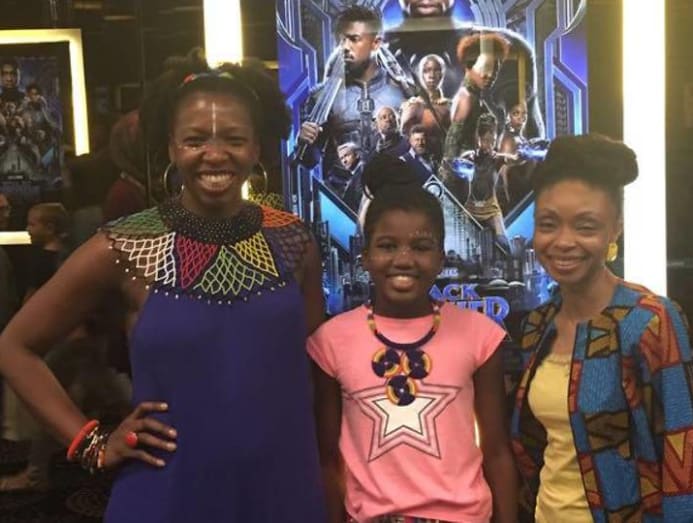
The African pride that Mouyelo felt at the cinema was a far cry from the feel she had when her family first came to Singapore in 2008.
On their first calendar week, she took her kids to Ikea, and on the mode, they were greeted past lots of stares on the passenger vehicle and MRT.
Ane one-time lady couldn't help but reach out and touch on her younger daughter's Afro-styled hair. "My girl was so afraid. It was a shock to us – everyone was staring, staring, staring like they hadn't seen anyone like united states of america before," she said, with a laugh.
FROM SLAVES TO FOOTBALLERS
Mouyelo, who works in a French shipping visitor and likewise runs the boutique fashion shop House Of Nell, is part of Singapore's black community today – a loosely-knit group of expatriates, long-term residents and citizens.
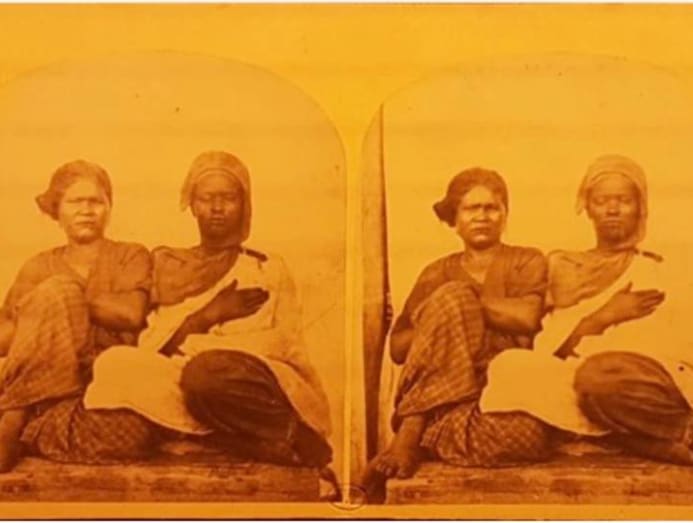
But while residents of African descent, similar Mouyelo, are regularly regarded every bit a curious sight here, an upcoming theatre production is aiming to prove that the history of black people in Singapore isn't something relatively new but in fact stretches way, way back.
Directed past Irfan Kasban and written by poet-playwright Ng Yi-Sheng, Ayer Hitam (or "black water" in Malay) is a lecture performance at the M1 Singapore Fringe Festival that looks at the black diaspora here.
And the clues lie everywhere, according to the testify'south creators: From African slaves brought in during the eighth-century Srivijayan empire and how the Bugis reportedly trace their ancestry to the Queen of Sheba in Ethiopia, to the to-and-fro adventures of explorers like Ibn Battuta and Admiral Zheng He.
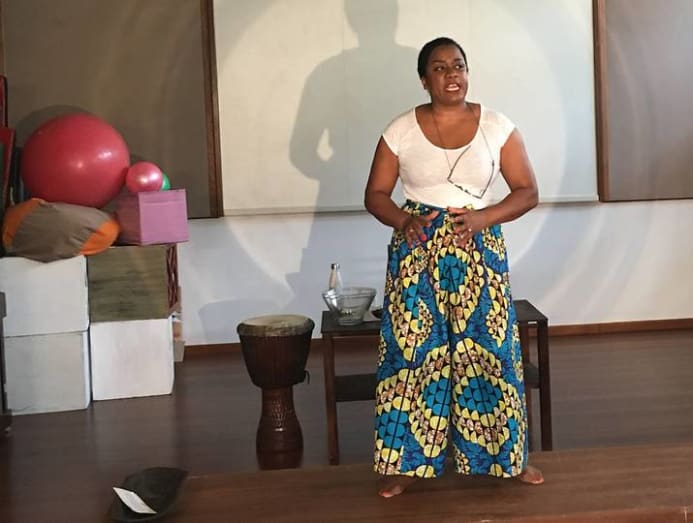
And then there's Sir Stamford Raffles. "He was actually born on a slave ship in Jamaica and his father was a slave trader," said Sharon Frese, who performs in Ayer Hitam and is a British national of Jamaican descent.
The 54-year-old actor and longtime Singapore resident added that slavery and colonialism were huge contributing factors to the presence of blacks here, who worked as domestic servants, concubines and slaves of the Europeans and local royalty.
One of the more than tangible pieces of proof the team found while doing inquiry was the population census, which listed a handful back in 1827 (under the derogatory label "caffrees") and peaked at 62 seven years later before dwindling and finally disappearing.
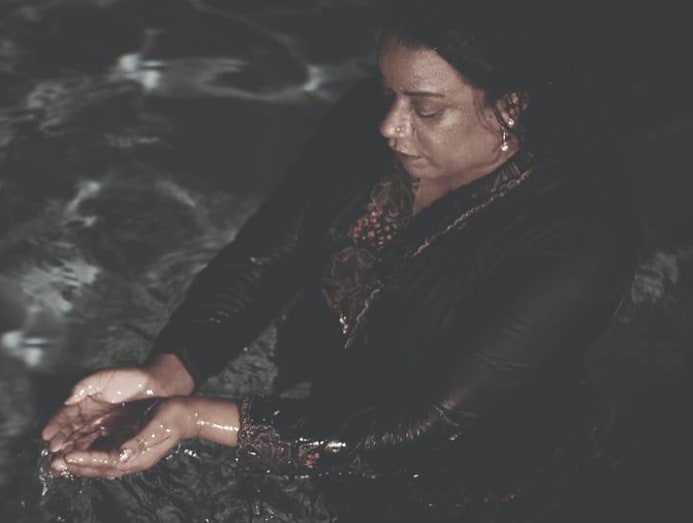
What accounts for the disappearance in the official books? One theory, said Frese, is that they were alloyed into the Malay and Indian communities.
Only that wasn't the only instance of physical black presence in Singapore – the first half of the 20th century would run across "black" music similar jazz or popular colonial sports in faddy. "The colonialists brought in boxing, which used to happen in Victoria Theatre, and we constitute about 13 boxers who were mainly Afro-Asians and blacks," said Frese.
It was a shock to us – anybody was staring, staring, staring like they hadn't seen someone like usa before!
One of their surprising finds, yet, was in politics – Labour Party leader Mak Pak Shee, who was function of David Marshall's cabinet, was supposedly of partial African descent, besides. "You had a blackness person in Parliament," said Frese.
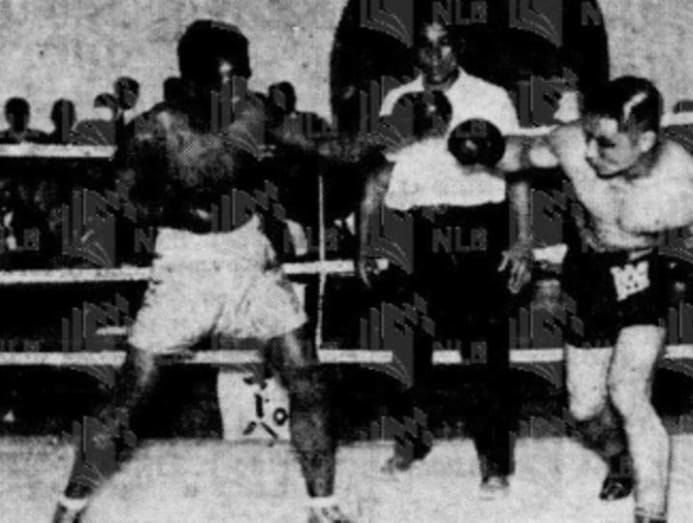
The 2nd half of the concluding century also saw closer ties between Singapore and fellow postal service-colonial African nations, which meant people from the latter came here to study and work. "My barber is of that generation – she settled in Singapore and raised a family and her children went on to do NS," said Frese.
Football game was also another area where Africans assimilated into lodge, with the likes of Itimi Dickson and Agu Casmir from Nigeria who both went on to play for the national team in the 2000s.
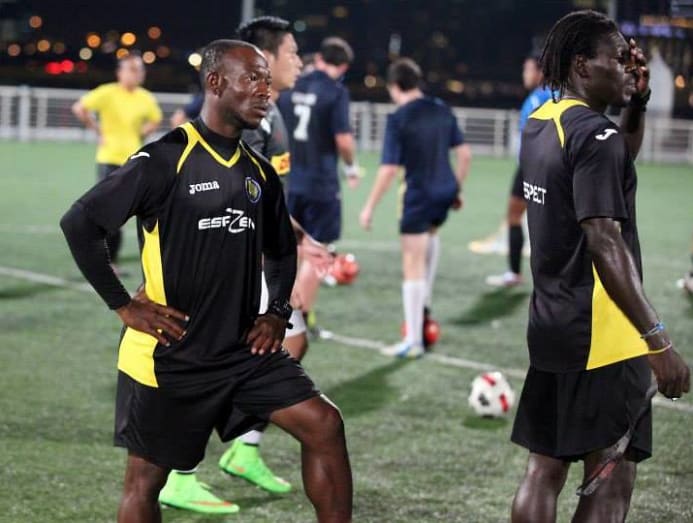
Present, the majority of the blackness community in Singapore work in all sorts of fields. "In that location is no black underclass here - you accept scientists, engineers, doctors, lawyers, people in finance," said Frese.
Hair-RAISING MOMENTS AND Standing OUT
One of the biggest and most visible groups today is BlackNet Singapore, which has around 500 people in its mailing list. Information technology comprises Africans, Europeans and Americans of African descent, and fifty-fifty those who accept grown upward in Singapore or other parts of Asia.
The networking group holds ad hoc events like talks and become-togethers, and even held their ain screening of Black Panther for the community.
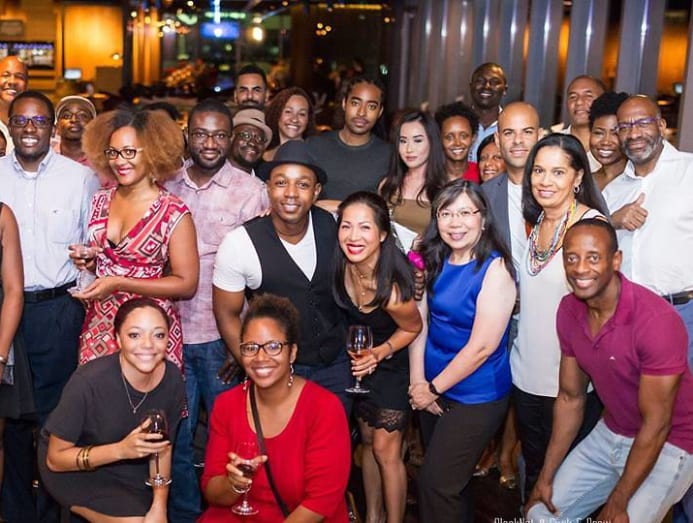
Bated from a take a chance to hang out with fellow members of the community and showcase the various aspects of African civilization, the group besides helps newcomers adapt to Singapore in even the smallest means.
"One of the first requests we usually get is for someone to help with their hair," quipped Lawrence Linker, 36, an American professional person with roots in Haiti, who founded BlackNet.
Many come up from places where racism is very serious and the majority of us experience that Singapore is probably one of the all-time places, where we experience very respected.
"Black people have very unique pilus and demand specialised haircare, so funnily enough, this is ane of the things that unites united states early on."
Hair issues aren't the but affair the community has to deal with. One of the biggest misconceptions black people accept had to dispel regularly is the assumption that it'due south ane big civilization.
"We're also so dissimilar – there's Africa itself, which has 54 countries and thousands of language groups; then you have black people who spend their whole life in Paris or the Middle East, or Europeans or Americans. It's an extremely various group," said Linker.
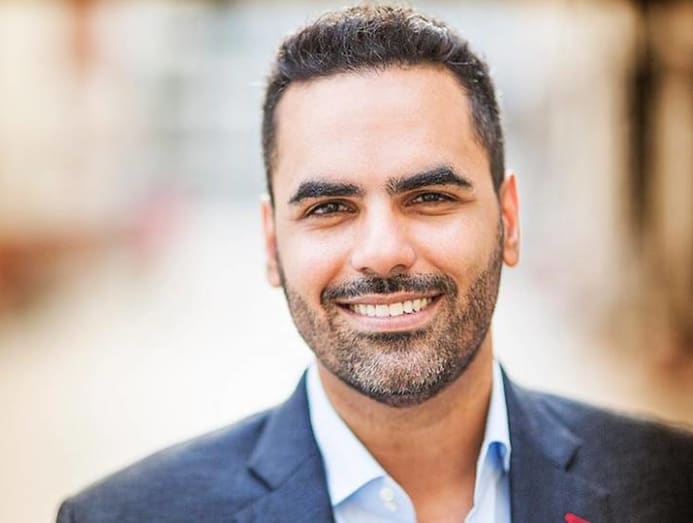
Unwarranted attention is also something many of them deal with when they step out in public.
Aside from her Ikea experience, another non-so-memorable moment for Mouyelo was existence in an elevator with a Singaporean family unit – with the mother and her immature boy asking if they could impact her. "The child touched me and looked at his finger to run across if the color was running, and the mother commented my pare was so soft," she said, adding that she wasn't offended. "It's a thing of educating people."
Frese, besides, has had similar experiences. "There has regularly been a (sense of) marvel and sometimes that can exist invasive – people sometimes forget you can't just come and touch people without consent. It'southward a naive marvel only you've forgotten your manners," she laughed.
Unwanted glances or touches aside (and sometimes blatantly taking photos without permission), Linker reckons it'south not as bad compared to other countries.
Stamford Raffles was actually born on a slave transport in Jamaica and his father was a slave trader.
"Many come up from places where racism is very serious and the majority of us feel that Singapore is probably one of the all-time places, where we feel very respected," he said.
Frese, who has fully embraced Singapore's culture – name any cultural festival or family unit event and she's attended it – reckons there is so much similarity between African and Singaporean cultures, whether it's food ("Rendang is like to a Jamaican back-scratch goat dish!") or abstract values such as respect for elders.
And while the impact of Africans and Africa in Singapore might not be quite as historically visible as, say, that of the Armenians, Frese hopes a testify like Ayer Hitam and other efforts to excavate local history will bring these forgotten aspects to light.
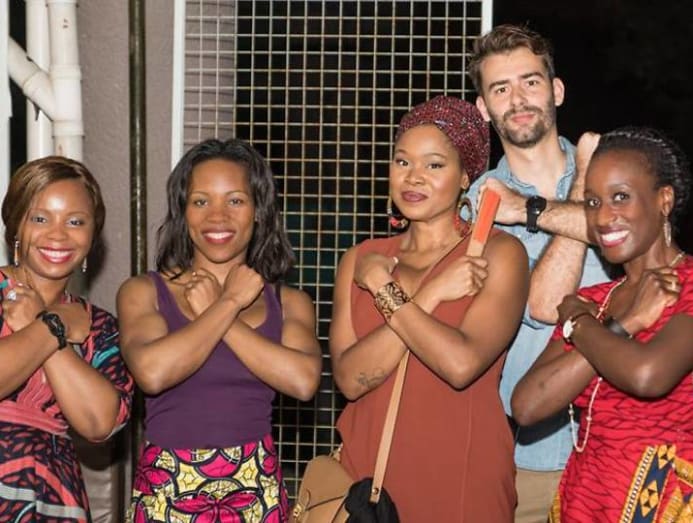
"Singapore began to prosper with the opening of the Suez Culvert (in Egypt), which was congenital through African slavery. Then companies similar the Dutch Due east Indies - all of what they brought to the region was with the assistance of unpaid, forced labour. And today, y'all've got highly skilled (people of African descent) and the expertise they bring, which is right across diverse occupations," she said.
Information technology might take a while for Singapore's African story to exist heard by more, but in the meantime, Mouyelo volition proceed to literally wear her heritage on her sleeve.
"I take never rocked my culture and worn African-inspired outfits equally much as I have in Singapore, and my family has taken that approach – we refuse to blend in and desire to stand out and portray our civilization."
Ayer Hitam: A Black History Of Singapore runs from Jan 17 to xx. For more information on bear witness and the M1 Singapore Fringe Festival, visit http://www.singaporefringe.com


0 Response to "Being black in Singapore: Our African history might go back to Bugis ancestry"
Post a Comment